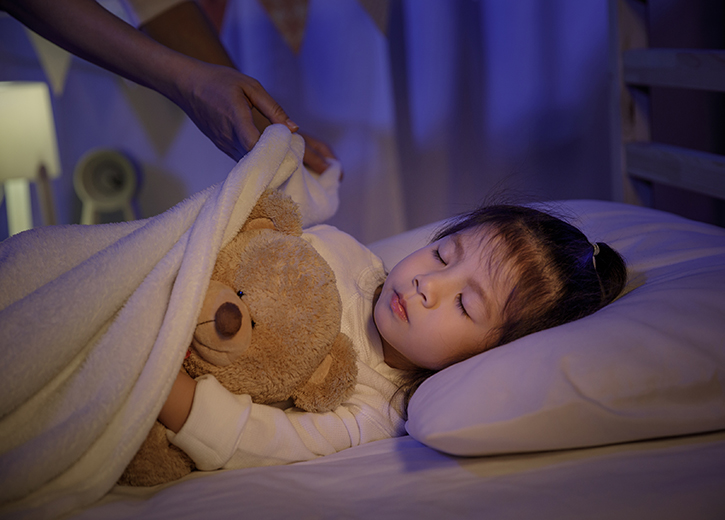Back to School: Six tips to help your child get a good night’s sleep
Family Health

It’s easy to get out of your schooltime routine during the summertime. But with most kids returning to class in the next few weeks, it’s time to reevaluate their sleep schedule.
A good night’s sleep is as important to your child as a hearty breakfast. Without enough shut-eye, children are more likely to struggle with their school studies, do poorly on the playing field and even lead to depression.
According to the National Sleep Foundation, children are getting less than the advised amount of sleep over a 24-hour period. This can make it tough for your child to solve problems and memorize lessons, which can lower grades and self-esteem. Sleep-deprived kids also are more easily frustrated and fidgety.
Additionally, a child’s sleep trouble affects the whole family. Parents who are up coaxing a child to bed are robbed of their own valuable sleep.
Related Article: Could what you eat and drink be affecting how you sleep?
So what do you do? The best cure is a consistent bedtime schedule.
Stick to a bedtime that permits this amount of nightly sleep:
- Ten to 13 hours for a 3- to 5-year-old child. Preschoolers often have difficulty falling asleep and staying asleep. Children this age also are more likely to have nightmares and sleep terrors and to sleepwalk.
- Nine to 12 hours for a school-aged child. Most school-aged children spend too much time on electronics, which can erode time for sleep. Watching TV or playing video games just before bedtime may make it difficult to fall asleep and may create resistance or anxiety about bedtime. This age group also may be drinking caffeinated beverages that can affect the ease of falling asleep at night. Too little sleep can lead to mood swings and behavioral and cognitive problems.
Here are some tips for more sound sleeping:
- If the current bedtime for your child is too late, move it 15 minutes earlier each night until you reach the desired bedtime.
- If your child resists, tuck them into their own bed, promptly and repeatedly, until they get the message that you expect them to get sleep on their own.
- Unplug the bedroom. Turn off TVs, computers, tablets and cellphones. Better yet, keep such things out of the bedroom, which should be a stimulation-free zone.
- Set a wind-down routine. Start the transition to sleep with dimmed lights and a warm bath, and end with reading a book. Don’t watch TV just before bedtime.
- Go decaf. Drinking any caffeine during the day can affect sound sleep. Caffeine is found not just in coffee and soda, but also tea and chocolate.
- Ask for help. If, despite these measures, your child still resists bedtime, has nighttime awakenings or snores, talk with your pediatrician.
Coming next week: Watch that backpack load: We give you tips on choosing the right backpack and how to use it properly
Source: Health Library powered by The StayWell Company, LLC/Krames